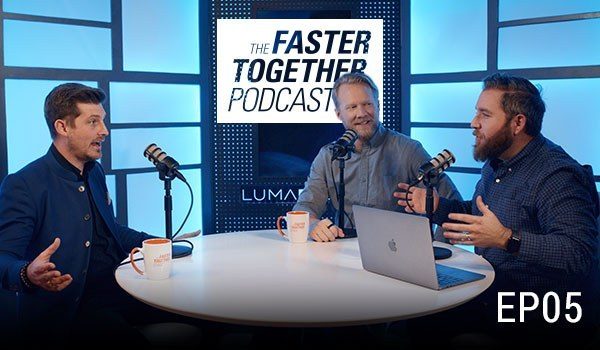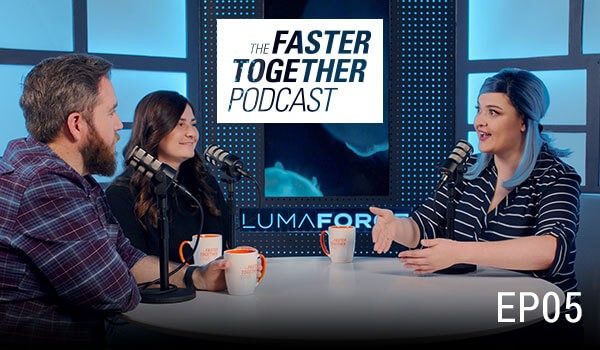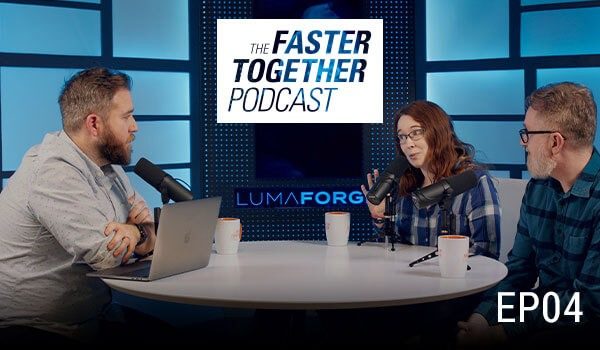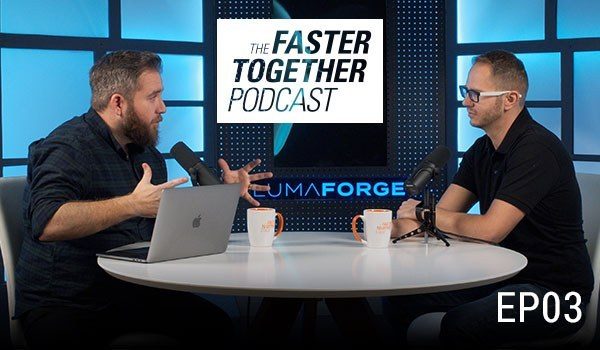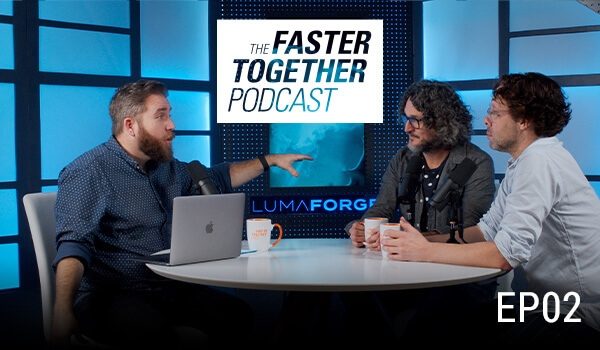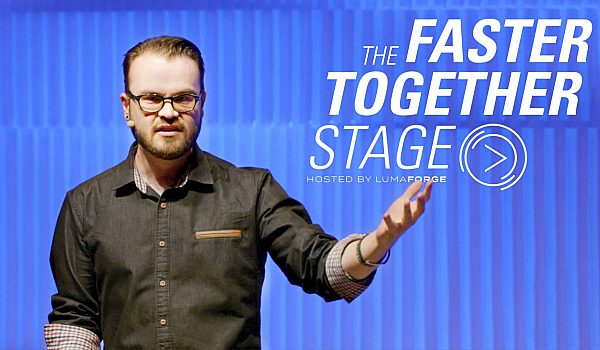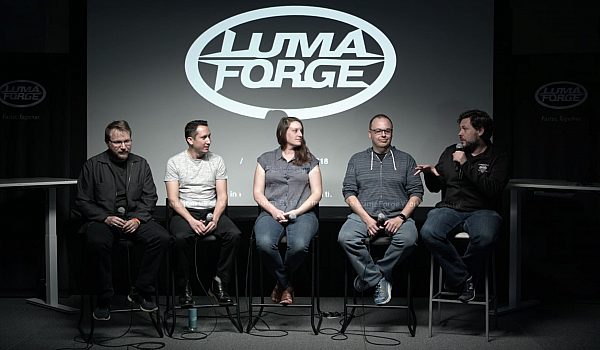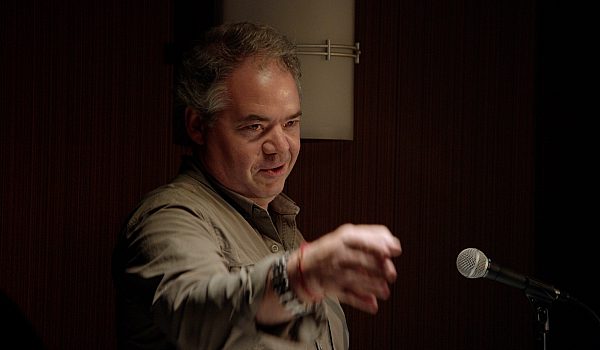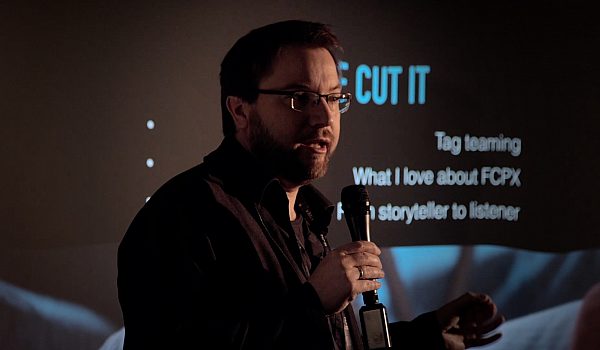Lisbeth Kaufman, CEO of KitSplit, grew up on indie-horror film sets and saw first hand how difficult it was for her father to get his movies made and out into the world. She believes community is the key to making filmmaking a reality for everyone.
Video: I've kind of lost track how many features I've done. Helvetica, Borat, a Muppets movie. The idea of KitSplit excited me a lot, having this one place where you can find everybody who has that kind of camera or that kind of thing. I do own a obscene amount of gear. It's kind of ridiculous, actually. It's almost embarrassing. I own four cameras? Sorry, five cameras. I make sure not to purchase equipment because I've fallen in love with it. That is not a good reason to buy gear. It's not a good reason to buy gear. The numbers have to work. So if somebody contacts me, and they wanna rent it, I'm all for it. It should be utilized.
Lisbeth Kaufman: Hi, everyone. So I'm Lisbeth Kaufman. I'm the CEO and Co-founder of KitSplit. I grew up on the cult horror film set. This is me, age 10, playing a mutant child on the set of my dad's film Tromeo and Juliet. This is my dad, Lloyd Kaufman. He runs Troma Entertainment, and he's been making films like The Toxic Avenger for 50 years.
As you can imagine, growing up on the cult horror film set was scary, but it wasn't these monsters and zombies that I was afraid of. What was really scary was how difficult it is for filmmakers like my dad to get the basic gear and services that he needs to make a movie. We all know that... This is my dad, freaking out. We all know that raising money for films is a nightmare, but even after you've got the funding, finding the gear, the crew, the locations, the talent. It's a huge hassle. It's very time-consuming and very expensive. It is the horror of filmmaking.
This is an industry of greenlighters and gatekeepers. It's their job to keep people out so that they can hoard the power. And we all know what happens when gatekeepers have too much power. But it doesn't have to be this way. We live in an era of the internet and smartphones where everything, from simple cab rides to complex bank transactions can be done with a touch of the button on your phone. Filmmaking should be that easy, and this is the basic principle of democratization of film. It should be easy and accessible for all. This is my focus.
I am obsessed with enabling filmmakers like my dad to make it easier for them to do their work. This is why I started KitSplit. Forbes and Fast Company have called KitSplit the Airbnb of cameras and the dominant player in the online camera rental marketplace. We've built a community of 50,000 filmmakers and production companies and hundreds of rental houses, and we've aggregated all of this gear in one place online so that, for the first time ever, filmmakers can save time finding exactly the gear and insurance that they need, and they can save money renting from other filmmakers like Luke Geissbühler, as well as rental houses nearby.
We've got the world's most affordable rental insurance. It's online, it's available 24 hours a day, and we've got an expert team of rental agents who are ready to help, seven days a week. Our aim is to take the horror out of filmmaking so that my dad doesn't have to freak out like this. And we're not alone. We're part of an ecosystem of companies like LumaForge and many others that are working to democratize film. We're all working to make it easier for filmmakers at every step of the production process, and ultimately make these gatekeepers obsolete.
So we see this happen all the time at KitSplit. Isabel Teitler, she's a first time filmmaker. She started her career as an editor for Darren Aronofsky and, maybe like some of you guys in the audience here, she wanted to make the jump from editing to directing. So she wrote a script, she raised money, and she came to KitSplit and used gear with us, and our rental agents got her an awesome deal from a rental house and ended up saving her $10,000. With that extra cash, she was able to bulk up on her crew, hire some of her friends from Darren Aronofsky's team, and make an awesome film. So this is how this democratization of film benefits the emerging filmmakers.
But what about the established filmmakers? I was on a panel at South by Southwest a few weeks ago and I got a question from a filmmaker in the audience, is democratization of film actually a good thing? He was worried that the glut of lower-quality content, the emerging filmmakers, was watering down the industry and competing with the higher-end, more professional stuff. And there may be folks here in the audience wondering the same thing. Is democratization of film good for me and other filmmakers like me? Well, yes, there is more amateur content out there, but it's not competing with the professional stuff.
The industry and the market is growing, and there's more high-quality content as well, which translates into more opportunities for filmmakers like you. So this year alone, Netflix will be spending $15 billion on content production, and global content production is growing 10% annually, so it will soon hit a staggering $380 billion.
At KitSplit, we're uniquely positioned to see the growth engine behind this enormous growth in the industry, because we're serving people like Isabel Teitler, first-time filmmakers, we're serving the indie guys like my dad, and we're also serving the more established filmmakers, doing Netflix productions. And here's what we're seeing. So, bear with my terrible handwriting, but it's what we're calling the growth engine of democratization. When we break down barriers and make things easier for filmmakers, more content creators can make more and better content, which increases the appetite and the demand for content, and this cycle feeds itself and grows the industry.
We see the same thing happening at KitSplit. So, we make it easier to rent gear, which means that more creators can make content and have demand for more gear, which attracts more owners listing gear on the platform, and ultimately means that we have more gear in more places, making it easier for the content creators. So you see how this cycle builds itself. And then the more gear we have on the platform, actually, the better the pricing, which contributes additionally to the demand. And we see a really cool thing happening on KitSplit, too, where we have owners who are also renters, so when they list gear on KitSplit and they earn extra money, they can use that towards their production and rent more gear and then add to the demand for the industry.
So this is what we're seeing, growing this industry at a really rapid pace. So let's see it in action. Jigsaw Media is Alex Gibney's Academy Award-winning production company, and they were working on a Netflix TV show about prisoners on death row. They had a really urgent shoot come up. It was a make-or-break situation. And of course, the shoot was on a Sunday, and they found out about it on a Friday night, so they needed their gear immediately.
They came to KitSplit, and within 10 minutes, our rental agents found them this perfect gear kit right near their shoot, and we were able to save the shoot and make the show happen. And the owner-operator who rented gear to the production, he got to make an awesome new connection with an award-winning production team and earn a few thousand dollars which he can now go and use for his next production.
So there's this beautiful engine of growth happening with the democratization of film. Now, when I look at my generation, the millennials, and the next generation, the Gen Z, I see them contributing to this growth engine of democratization at a dizzying pace. 80% of them consider themselves creatives, and 25% are shooting and uploading video on a weekly basis. That's like billions of people shooting on a weekly basis. And by 2022, 80% of internet traffic will be video.
What this says to me is that we're entering a new era of creative expression, and video is the dominant medium of communication. And what this means for you guys, your chosen medium, your craft, video and film has won. You have won. Video is the future of literacy. Filmmaking is the most important skill to have, and in the future, if you can't make video, you will not be able to communicate.
So yes, there's more amateur content out there, but when someone picks up a cell phone and shoots a quick video, it's like they're learning to read. It's like they're going to kindergarten. You guys, the filmmakers and the editors, you guys have gone to college, you got your Master's degree, you've gotten your PhD. You are the professor emeritus of video, and when you're shooting and you're editing, you guys are literally writing the grammar and the vocabulary for the future of video literacy.
So, to that guy who asked the question at South by Southwest, and to all of you guys, now is the time to embrace the growth engine of democratization. Now is the time to advance your craft and contribute to the future of video literacy. Thank you, and thank you LumaForge for having me.


 Mobile
Mobile
 Tower
Tower
 R24
R24
 Builder
Builder
 Manager
Manager
 Connect
Connect
 Kyno
Kyno
 Media Engine
Media Engine
 Remote Access
Remote Access
 Support
Support
